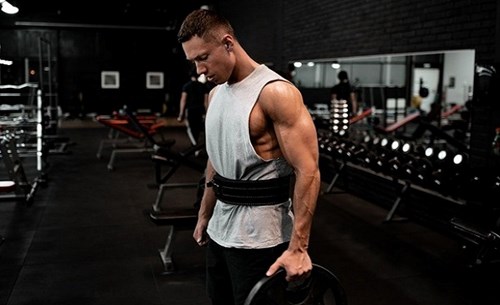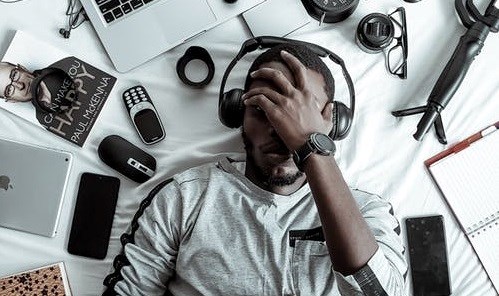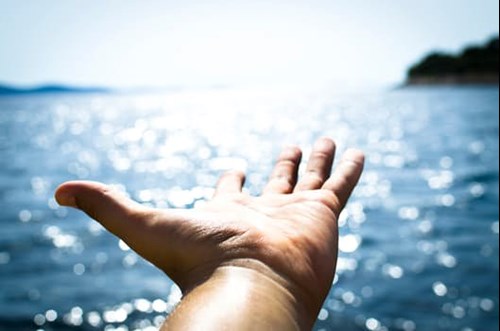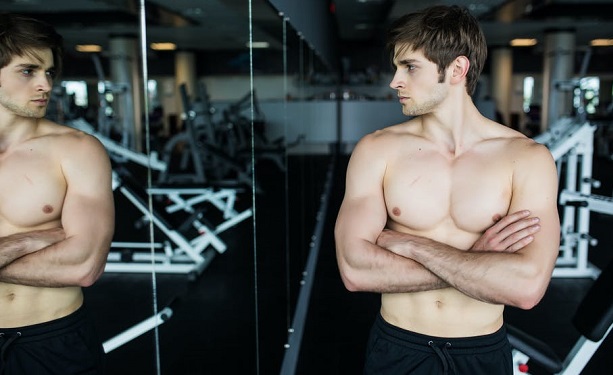The gyms closing made me realise that muscles aren't my only source of strength
I love lifting weights and training because it’s simpler and fairer than life.
By Dan Bradley at The Guardian
I’ve now been keeping training notebooks for the past 15 years or so. Glancing through them demonstrates over and over a reassuring credo: turn up consistently, work hard and intelligently, and improvement, achievement and transformation are inevitable.
This certainly used to be the case, but the pandemic made me see things anew.

Growing up, I had mostly negative experiences with sport and PE, but discovered a lifelong passion for activity when I got into rowing at university. My first term was fairly miserable and I struggled with low mood and severe social anxiety.
After a few weeks stuck in my room, listening to Kid A on repeat and sobbing with loneliness, I realised that I needed to reach out if things were ever going to change.
I signed up to the rowing club and threw myself wholeheartedly into training up to five to six days a week. I still felt awkward and clumsy but I couldn’t deny the transformation that was taking place: I lost weight, made friends and grew in confidence.
This goal-driven mindset was a compass that guided me through my 20s when I lived and worked in Australia and Japan. The lessons I’d learned in the gym – huge progress can be made with small, incremental daily improvements – served me well when learning Japanese, and I was able to return to the UK with good enough language skills to work as a translator.
In my 30s, too, riding a post-2008-crash carousel of unpaid internships, short-term contracts and precarious jobs, it has been running, cycling and lifting heavy that has kept me sane and managed my depression.
One winter, suddenly back at my parents’ place after my entire translation department was made redundant in a new year cull, I ran over the sand dunes every other day, down to the river where driftwood, logs and large rocks washed up, and I’d squat, press and flip things until my hands were raw.
I honestly started this year with a positive attitude. I had rejoined a local rowing club and was enjoying training with others and seeing solid improvement. But 2020 has forced me to sit still, and I’ve hated it.
When I recently saw that Joe Wicks’ live-streamed PE classes were among the most viewed YouTube videos in the UK during lockdown, I couldn’t help but wonder: was I the only one whose workouts this year had mainly been watching other people work out online, while I hoovered up comfort food and struggled to leave the house?
I work as a postman, which has been incredibly difficult this year, both physically and mentally. All my attempts at carving out healthy routines and training have been derailed by work stress, broken sleep, low mood and depression, not to mention the intermittent, short-notice lockdowns that have closed gyms and my rowing club, and made it impossible to train with others. My rigid all-or-nothing mindset has failed me.

In his essay Against Exercise, Mark Greif explores this modern dilemma, where, “turning to the gym or the track, you gain the anxious freedom to count yourself. What a relief it can be. Here are numbers you can change […] With willpower and sufficient discipline, that is, the straitening of yourself to a rule, you will be changed.”
2020 has exposed the incompleteness of the goal-centred mindset. Unlike playing guitar, which I’ve done almost every day since I was a teenager simply for the joy it gives me, my relationship with exercise and training has been, at times, unkind, a self-inflicted pressure and another form of work where I can display my value.
In the neoliberal world I grew up in, you either strive to be superlative or you’re worthless, and there’s plenty for my generation to confirm these low self-esteem suspicions: precarious gig-economy jobs, unpaid internships, mounting student debt, indefinite renting and so on.
Failing to turn up to the gym or training towards something, when it’s become such a part of my identity, can end up being another source of failure and shame.
Being forced indoors this year, I’ve realised that no amount of determination or willpower can replace the social support that comes from training, exercising or playing with other people.
My over-reliance on big solitary goals and external motivation, rather than on play, exploration and community, has made me vulnerable to the tyranny of metrics, and to disruptions of all kinds.

I see now that men’s mental health could benefit from a focus on care, collaboration, community and play, rather than on inflexible routine and goal-driven individualism; the latter turns physical activity into another form of work and personal performance, quantified for external validation, rather than the joyful act of moving for its own sake.
Boredom, anxiety, loneliness and exhaustion are important signals that need to be kindly tended to, rather than steam-rolled through with stoic grit and determination.
I still value goals and intend to get back to the gym in the new year. But until then my goal, moment to moment, is to find the kindest thing I can do for my health and for those around me.
That means no longer rising at 5am to run intervals in the rain; it’s arranging to walk in the park with a friend I’ve not seen for a while. It’s not a toxic focus on “clean eating”; it’s cooking new recipes from scratch and sharing them with those in my bubble.
As Henry Rollins writes in his essay Iron and the Soul: “Muscle mass does not always equal strength. Strength is kindness and sensitivity. Strength is understanding that your power is both physical and emotional. That it comes from the body and the mind. And the heart.”
Dan Bradley is a writer and Royal Mail postal worker

